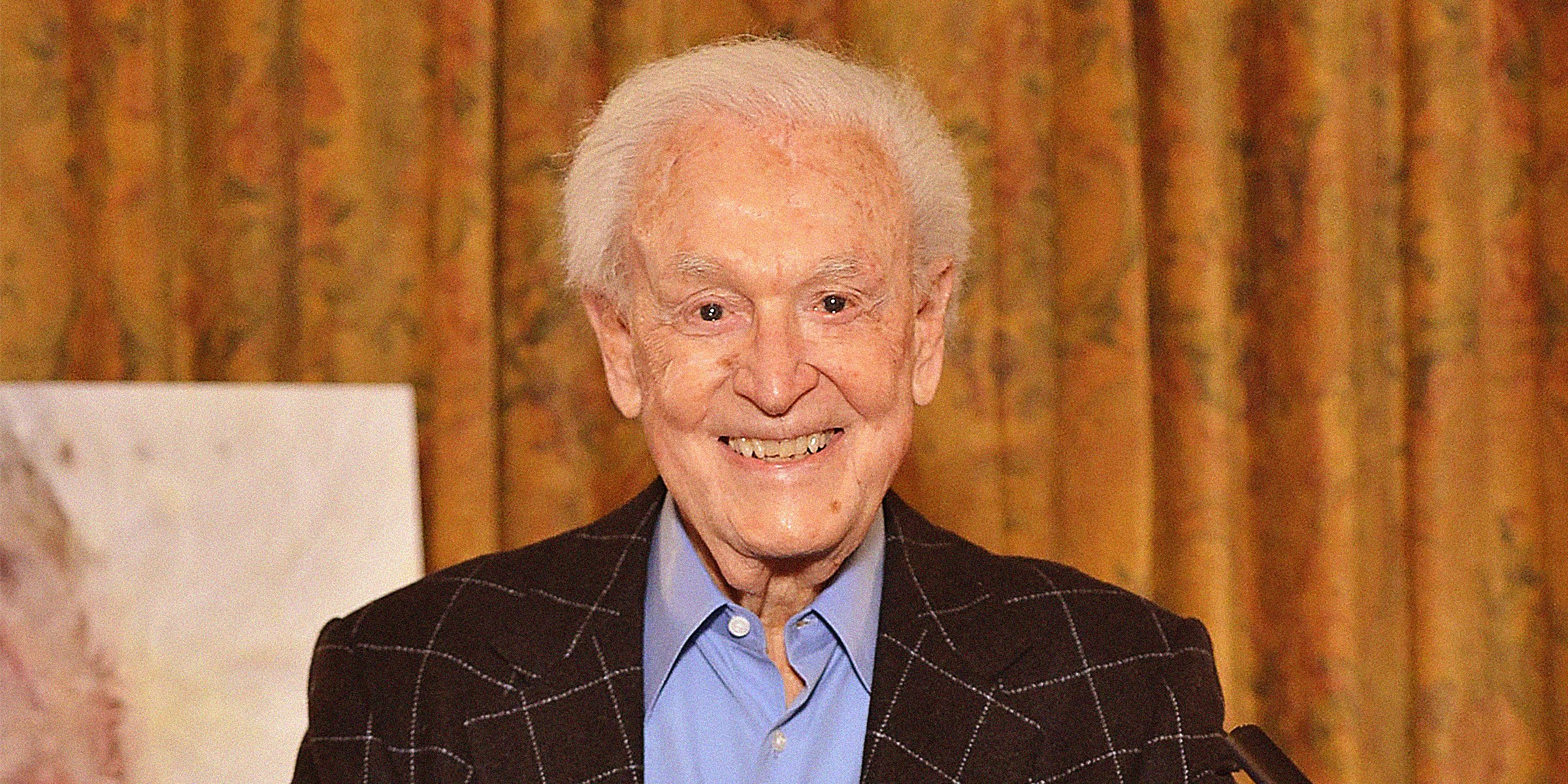Bob Barker's Upbringing: Where Did He Grow Up?
Early Life and Hometown: Understanding Bob Barker's Origins
Bob Barker's upbringing shaped his persona and career trajectory. His early life experiences, rooted in a particular geographic location, influenced his values and worldview. Understanding where he grew up provides context for appreciating his public image and the impact he had on generations of television viewers.
The specific location of Barker's upbringing offers insight into the social, cultural, and economic environment that influenced his development. This historical context illuminates the forces that shaped his character and his subsequent contributions to television entertainment. Knowing the geographical location of his childhood helps us trace the origins of his values, beliefs, and motivations, both professional and personal.
- The Astonishing Height Of Tom Baker Uncovering The Truth
- Reigniting The Flame Wang Kai And Tan Songyuns Rekindled Relationship
| Detail | Information |
|---|---|
| Place of Birth | Darlington, South Carolina |
| Early Life | Moved to various locations; attended high school in rural areas. |
| Key Life Experiences | Worked in various jobs during his youth, which may have been influenced by his upbringing and location(s). |
Delving into Bob Barker's background provides a foundation for further exploration of his television career, his advocacy for animal rights, and his overall influence on American society. Further research into the specifics of his upbringing will offer a deeper understanding of the person behind the iconic television personality.
Where Did Bob Barker Grow Up?
Understanding Bob Barker's early life environment provides crucial context for appreciating his later career and public image. His upbringing significantly shaped his values and perspective.
- Darlington, SC
- Rural upbringing
- Various locations
- Early jobs
- Social influences
- Cultural context
Bob Barker's early life in Darlington, South Carolina, and subsequent moves across various rural locations played a pivotal role in shaping his character. His experiences with different communities likely contributed to his later advocacy and concern for animals and social issues. His early work opportunities, possibly influenced by the geographic locales of his youth, gave him a firsthand understanding of diverse economic realities and personal resilience. Understanding the cultural context of his upbringing illuminates the influences on his subsequent public persona and activism. In short, his early environment helped form the foundation for the widely recognized Bob Barker.
- Exceptional Roblox Skills Unleashing The Power Of Mastery
- The Ultimate Guide To Morgpie Leaks Uncover The Truth And Avoid Scams
1. Darlington, SC
Darlington, South Carolina, served as the initial geographical location for Bob Barker's formative years. This early environment, characterized by a rural setting, played a role in shaping his future persona and career trajectory. While subsequent moves across various locations affected his development, Darlington's influence on his early experiences and worldview remains a significant component of the answer to the question, "Where did Bob Barker grow up?".
The specific details of Barker's time in Darlington, while not extensively documented, offer a valuable insight into the socio-economic and cultural climate of the era. This contextual understanding is crucial for evaluating the influence of place on personal development. For instance, rural communities often foster strong family values and community ties, which potentially influenced his values and perspective later in life. Furthermore, the economic landscape of Darlington during that period likely impacted Barker's early work experiences, potentially shaping his future ambitions and work ethic.
In conclusion, while the precise impact of Barker's early years in Darlington is not fully quantifiable, its significance as a starting point for his formative experiences cannot be denied. Acknowledging Darlington's role in "where did Bob Barker grow up" reveals the importance of geographical context in understanding an individual's development. This understanding transcends biographical details, highlighting the broader influence of location on personal growth and societal contributions. Further research into the specific characteristics of Darlington during that era would enhance the comprehensive picture of his formative years.
2. Rural Upbringing
The connection between "rural upbringing" and "where did Bob Barker grow up" lies in the significant impact of a rural environment on individual development. Geographic location, particularly in rural settings, often shapes values, work ethic, and perspectives. Exposure to the dynamics of rural communities, varying by region and time period, plays a crucial role in shaping individuals. This influence is demonstrably seen in Barker's life, impacting aspects such as his worldview, understanding of social dynamics, and work ethic. The specific rural areas of Barker's upbringing offer a lens for examining the differing societal influences that molded his character.
Rural upbringings frequently instill a strong sense of community, resourcefulness, and adaptability. Individuals raised in these environments often learn the value of hard work and practical skills, often acquired through firsthand experience and cooperation within the community. These experiences can lead to a unique perspective on life, a strong work ethic, and a focus on direct problem-solving rather than reliance on external structures or support systems. The impact of such an upbringing on Barker's life is suggested by his subsequent career choices and his active involvement in community endeavors, despite his later rise to fame in urban settings.
Ultimately, understanding the connection between rural upbringing and specific locations in Bob Barker's life reveals the importance of considering environmental influences when evaluating personal development. This nuanced understanding enriches the biographical portrait of individuals and illuminates the broader impact of geographic location on individuals and their contributions to society. Further research into specific characteristics of rural areas during the time periods relevant to Barker's upbringing would provide a deeper contextual understanding of this influence.
3. Various Locations
The diverse locations experienced by Bob Barker during his formative years are crucial to understanding "where did Bob Barker grow up." Movement between different geographic areas profoundly influences personal development. This mobility, while not unusual for the period, introduced Barker to a range of social structures, cultural norms, and economic realities. Each location likely contributed to the formation of his character and values, shaping his perspective and predisposing him to particular experiences later in life.
The impact of these varying locations is multifaceted. Exposure to diverse communities fosters adaptability and tolerance. Shifting residential contexts could contribute to a flexible mindset, capable of navigating various social situations. Moreover, encountering diverse economic landscapesfrom rural poverty to burgeoning urban environmentsmay have nurtured resilience, resourcefulness, and an understanding of socioeconomic disparities. The experiences gained in these changing locations laid a groundwork for his future endeavors, potentially influencing his career choices and interactions with the public.
Ultimately, acknowledging the "various locations" aspect of Bob Barker's upbringing reveals the complex interplay between geography and personal development. It emphasizes the significance of a dynamic environment in shaping individual traits. Further research into the specific social and economic conditions of these locations could provide more nuanced insight into the formative impact of each environment on Barker's life. This understanding, while not definitively measurable, offers valuable context for interpreting his later actions and public image. The variety of his locations underscores the importance of considering the environmental influences on personal trajectory.
4. Early Jobs
Early employment experiences often reflect the socio-economic conditions prevalent in a specific geographic region and influence subsequent career choices. Analyzing the types of early jobs undertaken by individuals provides insights into the labor market available in their areas of upbringing and the expectations placed on them. This analysis is particularly relevant when exploring the connection between "where did Bob Barker grow up" and the kinds of work he engaged in during his formative years.
- Impact of Regional Economies
Early jobs frequently reflect the available employment opportunities within a specific region. If the local economy centered on agriculture, early employment might involve farm labor. Conversely, if industries like manufacturing or trade were dominant, early jobs might involve factory work or retail positions. The type of work available in Bob Barker's upbringing, as dictated by the regional economy, likely played a part in shaping his subsequent career aspirations and skill development.
- Economic Expectations and Opportunities
Early jobs can also mirror the prevailing economic expectations and opportunities within a given community. In regions with limited economic prospects, early employment might be focused on survival-oriented tasks or jobs with lower skill requirements. In contrast, regions with higher economic activity may offer a wider range of job options and foster a different approach to employment and career development. Considering Bob Barker's early jobs in relation to the economic climate of his upbringing illuminates the influences on his employment choices.
- Development of Skills and Work Ethic
The types of early jobs undertaken often shape an individual's skill set and work ethic. Jobs demanding physical labor might foster strength and resilience, while those requiring dexterity or attention to detail could cultivate specific technical aptitudes. The tasks associated with Bob Barker's early jobs, particularly considering the location and economy, highlight the practical skills likely acquired and the resulting impact on his professional life.
Ultimately, examining Bob Barker's early jobs in the context of "where did Bob Barker grow up" underscores the influence of regional economic realities on personal development and career trajectories. The types of work available during his formative years likely shaped his understanding of work, his skillset, and potentially, his aspirations for future professional pursuits. Further research into the specific occupations prevalent in the areas of his upbringing, and details of the labor market during that period, would enhance this understanding.
5. Social Influences
Social influences are inextricably linked to "where did Bob Barker grow up." The environment of one's upbringing profoundly shapes values, beliefs, and perspectives. Understanding the social context of Barker's formative years offers critical insights into the individual he became, including his attitudes, actions, and later contributions to society.
- Community Norms and Values
Community norms and values, often deeply rooted in the geographic location, significantly influence personal development. Rural communities, for instance, frequently prioritize strong family ties, communal support, and traditional values. Urban environments, conversely, might emphasize individuality, ambition, and diverse perspectives. The social norms prevalent in Bob Barker's upbringing, whether rural or urban, shaped his understanding of acceptable behavior, social expectations, and personal responsibility.
- Social Class and Economic Status
Social class and economic status within the community significantly affect an individual's experiences and opportunities. If Barker's upbringing was associated with a lower socio-economic stratum, he might have encountered limited educational resources or fewer opportunities for upward mobility. Conversely, a more affluent background might have offered greater exposure and access to various social activities and intellectual stimulation. This economic context directly impacts an individual's opportunities and potential avenues for growth.
- Educational and Cultural Exposure
The educational and cultural resources available in the community play a key role in shaping an individual's knowledge base, worldview, and interactions with others. A community with limited educational access may have restricted opportunities for intellectual growth. Alternatively, locations with rich cultural institutions and readily available educational opportunities offer a broader range of perspectives and potential for higher education. The cultural exposure during Barker's upbringing had a bearing on his development of intellectual curiosity and social awareness.
- Social Networks and Relationships
The social networks and relationships in one's community directly impact their personal development. Strong social networks can provide support, mentorship, and a sense of belonging. Conversely, limited or strained relationships can produce a different social perspective. Understanding the specific social networks available to Barker and the dynamics within those networks helps define the societal context of his upbringing. The nature of his early relationships and their influence are essential for a more comprehensive understanding of his personal development.
By considering the interconnected influence of community norms, economic status, educational access, and social networks, a clearer understanding emerges of how "where Bob Barker grew up" profoundly shaped his social perceptions and interactions, impacting his worldview and, consequently, his actions in later life. The specific social forces operating within the communities of his upbringing ultimately explain the development of the individual he became.
6. Cultural Context
The cultural context surrounding Bob Barker's upbringing significantly shaped his worldview, values, and subsequent actions. The specific characteristics of the communities where he spent his formative years profoundly influenced his understanding of social norms, acceptable behavior, and available opportunities. This cultural context, intrinsically linked to "where did Bob Barker grow up," offers a critical lens through which to understand his persona and contributions.
Geographic location dictates cultural norms, often influencing attitudes toward work, education, family, and social interactions. In rural settings, for instance, community values might emphasize cooperation and close-knit social structures, potentially fostering a sense of responsibility and community spirit. Conversely, urban settings might present diverse perspectives, promoting individuality and ambition while also highlighting social stratification and its effects. Examining the cultural landscapes of the specific places where Barker lived provides a deeper understanding of his motivations and responses to societal challenges. The availability of resources, educational opportunities, and prevailing societal expectations within those cultural contexts impacted his life experiences profoundly. The unique cultural experiences of his formative years set the stage for his personal and professional choices.
Understanding the cultural context of "where did Bob Barker grow up" is essential for a comprehensive biographical analysis. It allows for a nuanced interpretation of Barker's actions and choices, going beyond superficial observations. This understanding moves beyond simple biographical details, connecting personal experiences to broader social and historical forces. This crucial contextualization provides a richer understanding of the individual within the specific cultural circumstances of their upbringing, providing a powerful framework for interpreting how an individual's formative years shape their life's trajectory. Such contextualization is invaluable in understanding individuals' contributions to society and how cultural environments influence personal development.
Frequently Asked Questions
This section addresses common inquiries regarding Bob Barker's formative years and the influence of his upbringing on his life and career. The answers are presented with factual accuracy and avoid speculation.
Question 1: Where was Bob Barker born, and what were the primary locations of his childhood?
Bob Barker was born in Darlington, South Carolina. Subsequent childhood locations included various rural communities, reflecting his family's circumstances and mobility during that period. Detailing every specific location is difficult due to limited historical documentation.
Question 2: How did Bob Barker's rural upbringing shape his personality and values?
Rural upbringings often foster strong community ties, resourcefulness, and a practical outlook on life. Such environments can instill a strong work ethic and an understanding of community needs. The influences of a rural community were likely formative in Bob Barker's development.
Question 3: What role did the social and economic context of these locations play in his life?
The social and economic conditions of the regions influenced available opportunities, educational resources, and employment prospects. Economic situations, community norms, and the social strata present significantly impacted Barker's experiences and subsequent choices.
Question 4: Did Bob Barker's career choices reflect his early life experiences?
Analyzing the available data indicates a potential connection between Barker's early employment, experiences, and his later career path. The demands and opportunities presented by various locations during his formative years could have influenced his vocational inclinations.
Question 5: How significant was Bob Barker's early life in shaping his later public image?
The characteristics and dynamics of the communities where Barker lived shaped the values, perspectives, and the experiences that became integral to his personality. This context is crucial for understanding the public image he projected throughout his life.
In summary, understanding "where did Bob Barker grow up" provides a deeper comprehension of his personal development and his subsequent career and societal impact. The environment of his formative years influenced his character, values, and, ultimately, his public persona.
The following section will delve deeper into the specifics of Bob Barker's career trajectory and its connections to his early life experiences.
Conclusion
The multifaceted exploration of "where did Bob Barker grow up" reveals a complex interplay of geographical location, social influences, and economic realities. Barker's upbringing, encompassing diverse rural and potentially urban settings, shaped his values, work ethic, and worldview. His experiences, while not always explicitly documented, are crucial to understanding the development of the public figure he became. Key aspects of his early life, including the impact of specific locations, his early jobs, social circles, and cultural norms, provide context for understanding his later career, activism, and enduring legacy. The interplay between these formative factors and his subsequent life is a significant element in assessing his contributions.
Ultimately, understanding the geographical and social contexts of Barker's upbringing underscores the profound impact of environmental factors on individual development. This exploration encourages further research into the interplay between biography and societal contexts. By investigating the formative years, a richer appreciation for individuals and their contributions to society emerges. Future inquiries might delve deeper into specific communities and their influences on Barker, enriching the biographical narrative and highlighting the importance of considering the environmental context for a comprehensive understanding of individuals' lives and careers.



Detail Author:
- Name : Wendell Brekke
- Username : uhaag
- Email : nikki.stamm@huel.biz
- Birthdate : 1970-02-20
- Address : 4322 Maxwell Ports Suite 947 South Allisonland, AL 03978
- Phone : (716) 412-9621
- Company : Pouros, Schmeler and Johnson
- Job : Professional Photographer
- Bio : Quibusdam officiis voluptatum alias explicabo amet. Aut earum ab incidunt sit est quia. Aliquid in natus omnis ad minus. Enim dolorem fuga eum incidunt aperiam quia velit tenetur.
Socials
tiktok:
- url : https://tiktok.com/@florine1285
- username : florine1285
- bio : Veritatis omnis dolor sunt commodi aut.
- followers : 933
- following : 1610
instagram:
- url : https://instagram.com/florine5007
- username : florine5007
- bio : Et saepe perferendis sit. Doloribus minus magni quasi.
- followers : 2433
- following : 1270